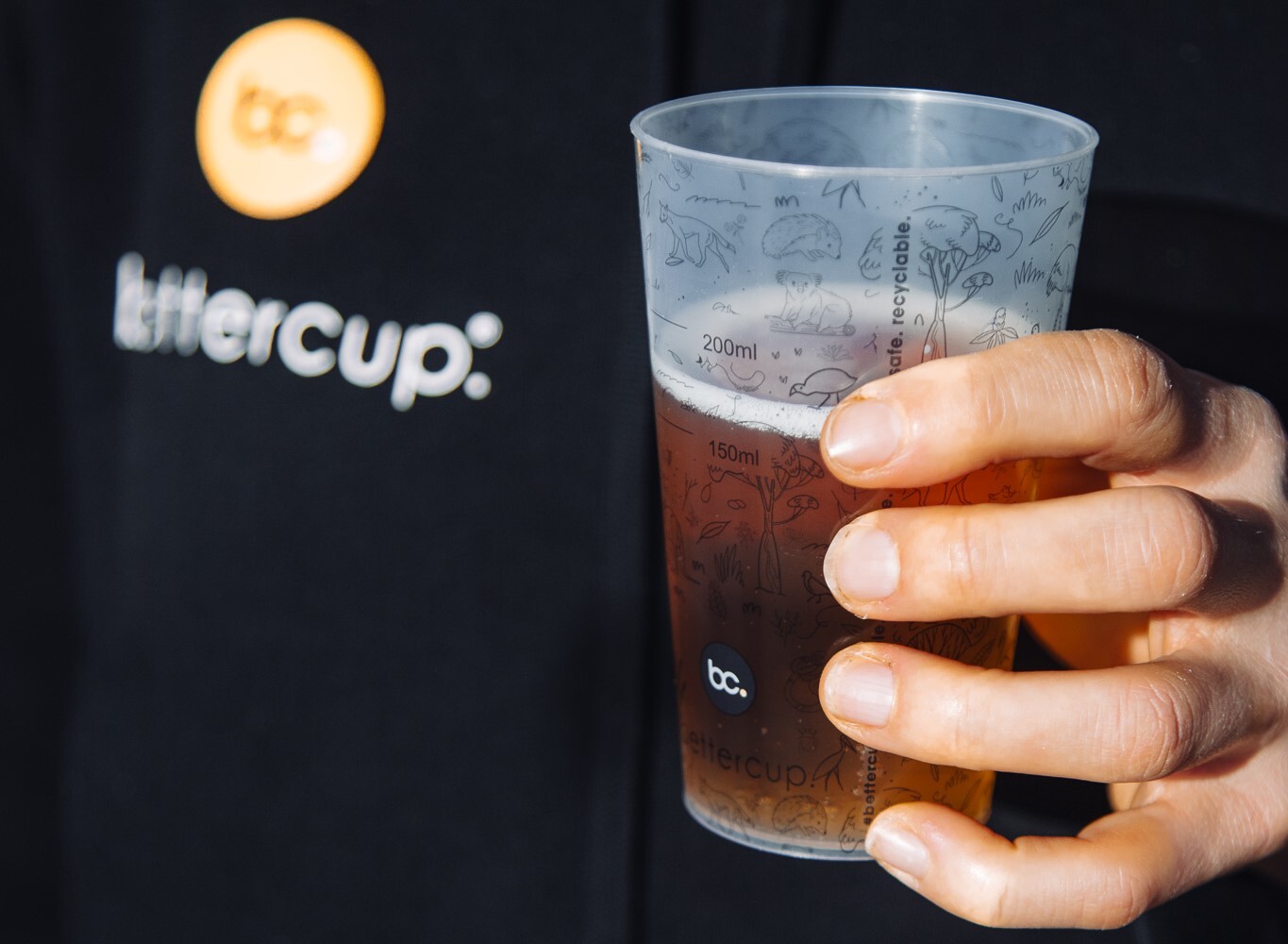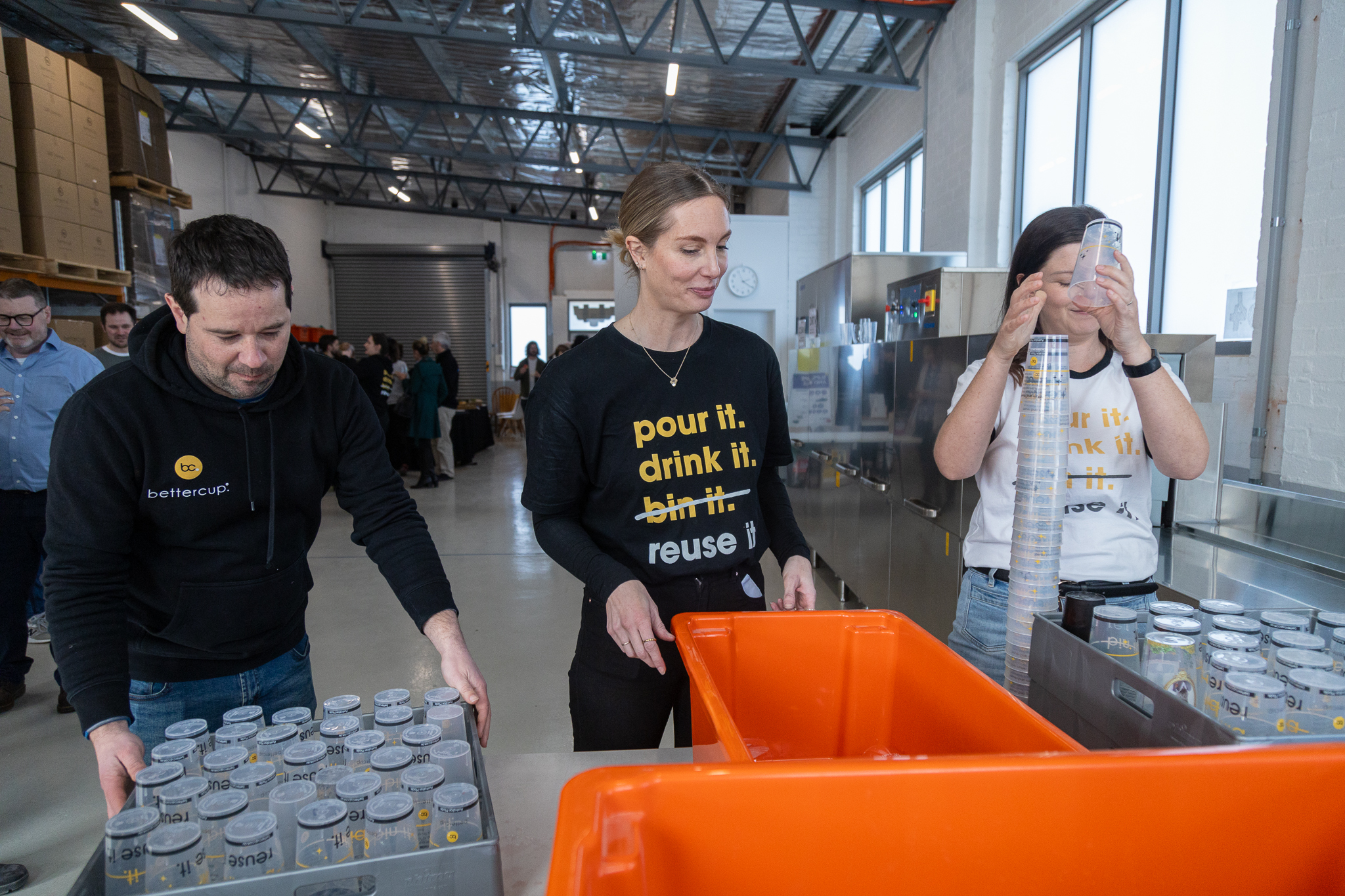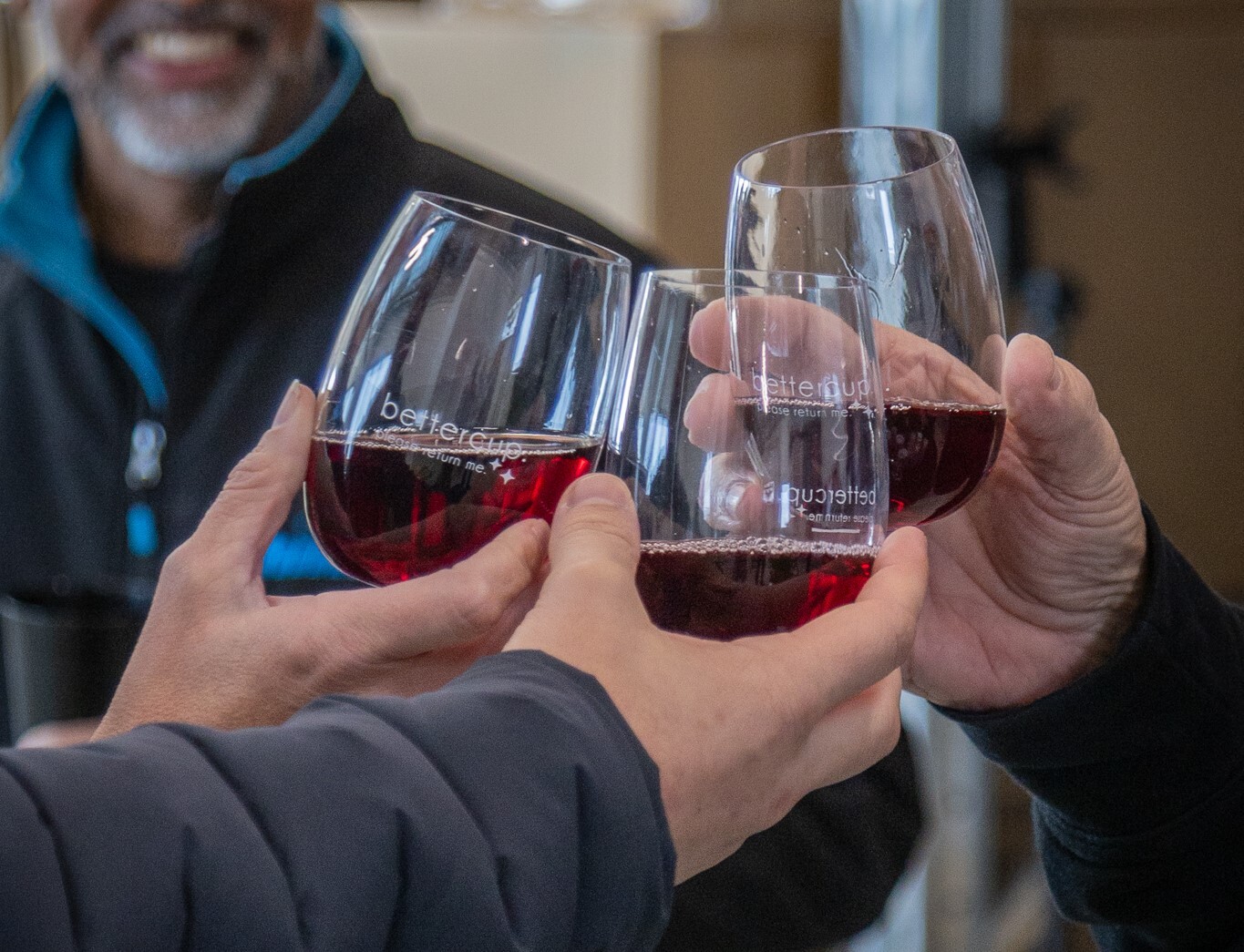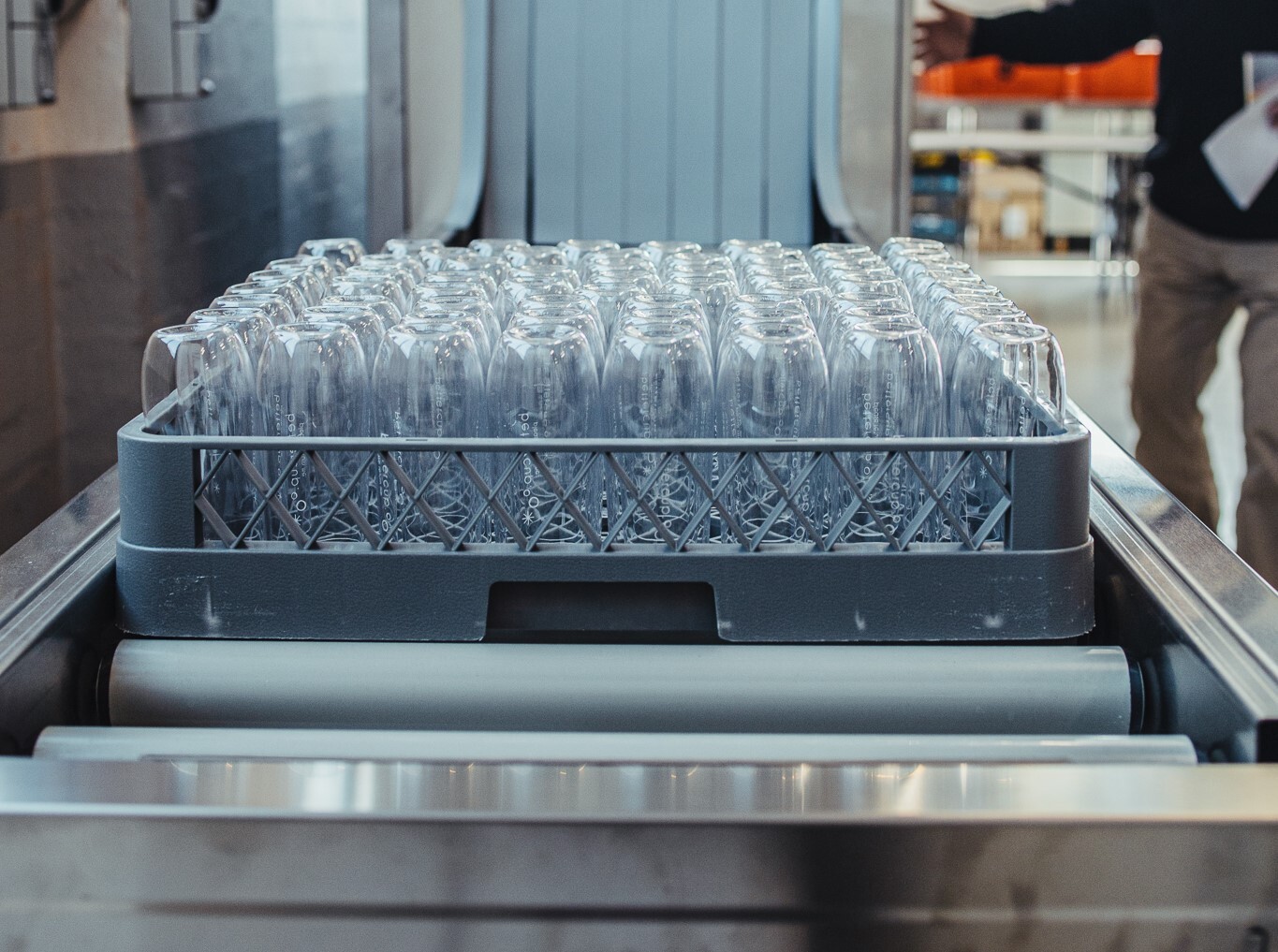Funded project – Doubling Bettercup’s reusable cup manufacturing capacity and circular support services
Bettercup doubled its manufacturing and cleaning capacity of reusable cups, enabling the company to service large events with an eco-friendly circular solution. The project enabled the elimination of over 1,200 tonnes of single-use plastic waste through washing, redistribution, and cost-effective rental options for event organisers.
Introduction
The events industry in Australia faced a significant challenge: whilst demand for sustainable cup solutions was growing, the capacity to deliver reusable alternatives couldn't keep pace. With Live Nation reporting record-breaking attendance levels and Victoria hosting Australia's top 10 attended events, the need for scalable, sustainable solutions became critical.
Event organisers increasingly sought environmentally responsible practices, yet the logistics of managing reusable cups—collection, washing, restocking, and patron education—often proved overwhelming. The simplicity and low cost of single-use cups, combined with heightened hygiene concerns post-COVID-19, frequently led organisers to default to disposable options.
Bettercup, a female-founded enterprise established in 2018, has emerged as Australia's most trusted reusable cup system supplier. Their comprehensive circular model encompasses local manufacturing, cup rental, collection, washing, storage, and sustainability consulting. Having supplied over 500,000 reusable cups to major events including the Australian Open and Melbourne Fashion Week, each cup averaging 300 uses, Bettercup had already prevented 12,000 tonnes of single-use plastic waste.
As post-COVID event attendance surged, demand for Bettercup's services outpaced their operational capacity. This project aimed to double their manufacturing and cleaning capabilities whilst expanding circular economy support services, advancing their mission to eliminate single-use cups from Australian events and venues.
Stages
| 07/11/2023 | Project initiation: Detailed planning and budgeting completed |
| 27/11/2023 | Equipment ordered: Two-cavity manufacturing tooling and custom tunnel conveyor washer. Warehouse Operations Manager hired |
| 28/02/2024 | Customer Delivery Manager hired, initial factory electricity upgrades completed |
| 28/03/2024 | New washer manufacturing completed, commenced transit to Australia |
| 31/05/2024 | Manufacturing tool and tunnel washer installed, staff training completed, Factory and Event Support role filled |
| 30/06/2024 | Warehouse infrastructure upgraded with pallet racking and walkie stacker |
| 29/11/2024 | Manufacturing tool refinements and project review completed |
Outcomes - what worked?
The project delivered substantial improvements in operational capacity and environmental impact. Manufacturing capability doubled to 3,000 cups daily through the new two-cavity tool, whilst the custom-built, advanced tunnel washer system increased cleaning capacity to 3,000 cups per hour.
Environmental impact exceeded expectations, with over 1,200 tonnes of waste eliminated through reusable cup implementation. The project facilitated 391 events and venues transitioning to reusable solutions, including partnerships with councils across Australia and New Zealand.
Significant infrastructure improvements included power upgrades, expanded storage facilities, and streamlined operations. The project created three full-time positions: Customer Delivery Manager, Factory Manager, and a Factory and Events Manager role.
The project saw circular economy education increase nationally through implementation workshops with seven local councils, consulting sessions with major venues like Sydney Opera House, and industry engagement via sustainability panels and webinars.
Challenges
Manufacturing and Shipping Delays
Despite generous timeline buffers and using a local supplier the tunnel washer was manufactured in Italy and faced a six-week production delay and subsequent shipping setbacks. While project milestones were ultimately met, the experience highlighted the need for extended allowances in international procurement timelines.
Two-cavity Tool Installation Complexity
The refinement process for the two-cavity manufacturing tool proved more complex than anticipated, resulting in eight weeks of machine downtime and multiple toolmaker adjustments. While quality standards were maintained and customer impact avoided, the experience revealed the importance of factoring extended testing periods into cost estimates.
Insights to share with other businesses
Building a strong network proved invaluable throughout the project. Active participation in circular economy events and industry gatherings, even during busy periods, led to valuable collaborations and learning opportunities that strengthened the initiative.
Progress over perfection emerged as a crucial principle. While thorough research and planning remain essential, avoiding analysis paralysis and maintaining momentum through iterative improvements proved more valuable than waiting for perfect solutions.
What's next?
Bettercup's growth trajectory continues with several strategic initiatives:
- Product expansion into reusable coffee cups and food trays, leveraging lessons from the two-cavity tooling process
- Manufacturing process refinements to enhance efficiency and reduce costs
- Team expansion, including transitioning the Factory and Event Support contract to a full-time Customer Coordinator position
- Collaboration with circular economy businesses to create a washing nub for reusables and other products
- Supporting and consulting to local councils to establish community wash hubs and washing trailers
With nationwide single-use cup bans anticipated within 2-3 years, Bettercup is well-positioned to meet increased demand and support organisations in their transition to circular solutions.
From the grantee
"The CEBIC funding has been transformational, doubling our manufacturing and washing capacity and enabling us to scale our impact. It has allowed us to support more customers, improve efficiency, and strengthen our role as leaders in the circular economy."



